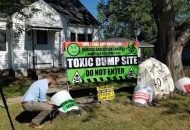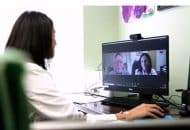Congress: Don’t Tarnish Care and Treatment in Our Golden Years
COMMENTARY

We are in a golden age of medical discoveries. Science and technology continue to advance rapidly, reaping the rewards of once unimaginable breakthroughs to treat conditions like Alzheimer’s, immune disorders and many cancers. These therapeutic advancements are often enabled or supported by new diagnostics that can more precisely detect disease through less invasive testing and identify biomarkers to match diseases with known treatments or even cures. In short, precision diagnostic testing is the foundation of personalized medicine.
Considering this progress in diagnostics and the impact on patients, it is deeply concerning that in January Medicare payments for hundreds of existing clinical laboratory tests used to detect, monitor and manage diseases in seniors are scheduled to be cut by up to 15%. What’s worse, this would be the fourth round of cuts since 2018 and they are scheduled to repeat at the same level again in 2025 and 2026, meaning two more rounds that could be up to 15% each. Those cuts add up quickly.
Reducing payment for clinical laboratory tests is the very definition of “penny wise and pound foolish.” These tests account for less than 3% of spending in Medicare and inform 70% of all health care decisions. Imagine a routine physical that didn’t include basic tests like cholesterol, A1C and complete blood count. Doctors would be flying blind without the critical insights that are revealed with a simple blood sample. This information helps providers get a clearer picture of a patient’s health and determine if treatment or further testing is warranted. It is foundational to care.
Undermining clinical laboratory testing with repeated payment cuts does not make sense and is unsustainable. These payment cuts will surely reduce access to testing and undercut investment in innovation at a critical time.
Fortunately, there is a straightforward, reasonable, bipartisan solution that is gaining support in Congress. The Saving Access to Laboratory Services Act has been introduced in both the House and the Senate, and would put payment for clinical laboratory services on a fiscally responsible and sustainable path forward. Enactment of this legislation would protect seniors’ access to testing, support investment in the next generation of diagnostics and ensure that the nation’s testing infrastructure is in place in case of emergency. As COVID-19 and other infectious diseases have proven, the next health emergency is just around the corner. It’s not a case of if we’ll need a strong testing infrastructure, but when.
SALSA has broad support among an array of patient and provider groups. In fact, RetireSafe recently joined 36 other leading patient organizations in signing a letter to congressional leadership, urging them to protect patient access to these essential laboratory tests. Without action, the health of our seniors and overall care infrastructure is at stake.
On behalf of the nation’s retirees, I urge Congress to pass SALSA this year to ensure seniors can continue to get the tests they need and continue to benefit from next-generation diagnostics that promise to transform care. Americans in their golden years deserve access to the diagnostic and therapeutic innovations arising from this golden age of medicine.
Mark Gibbons is the president and CEO of RetireSafe, helping to raise the platform in education and awareness for seniors across the nation. Before joining RetireSafe, Gibbons was the senior director of External Programs at the Caregiver Action Network for nine years. He dedicated 10 years of service to the U.S. Army by serving as a commander in combat operations Desert Shield/Storm as well as humanitarian effort in Operation Provide Comfort. Following service to his country, Gibbons served as chief of staff for the mayor of Augusta, Georgia, and then as a congressional aide for Rep. Charles Norwood, R-Ga. Following his relocation to Washington, D.C., Gibbons brought his leadership skills to the syndicated television program, the “McLaughlin Report.” He is a graduate of Our Lady of the Lake University in San Antonio, Texas, where he received a B.A. in Computer Science and his military commission from St. Mary’s University. He can be reached by email and through RetireSafe’s website.
























